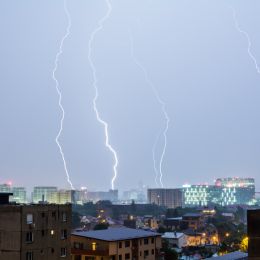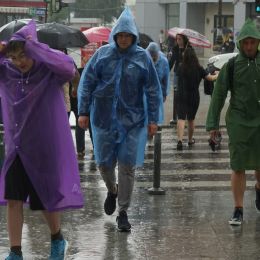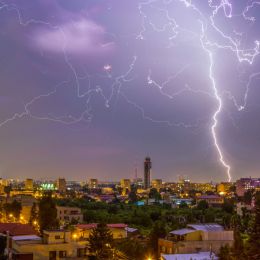“Meltdowns at Bucharest Stock Exchange were triggered by losses at international markets. However, during yesterday’s session, shares have mildly recovered” said Gabriel Necula, Operation Manager with Prime Transactions.
BET index slid 3.88%, down to 4,258.04 points, while BET-C indice dropped 2.74% down to 3,235.74 units. BET-FI index lost 5.56% and Vienna trading’s ROTX index. BET-XT index dropped 4.41% and BET-NG lost 3.93%.
“It is hard to imagine steep declines in the upcoming period as well, nevertheless, it is certainly not impossible. It is a strong correlation and this is what yesterday’s trading session emphasized. There are still buyers in times of major declines, but when the market is undergoing an edgy trend, they are no longer out there,” Necula pointed out.
Mihai Chisu, broker at IFB Invest, says international markets stabilization will lead to BSE recovery. “Anyway, foreigners will then start pumping loads of liquidity, but only if the market has something to offer in return. If there will not be any instruments to draw their interests, issuers, and a more mature share market, then we will have to suffer,” Chisu explained.
For now, the influence at micro extent (companies and banks) is low. “I believe these events will dent our economic environment sooner or later. Thus, I expect the declines to continue,” said Ovidiu Fer, analyst at Wood&Company.
Bucharest Stock Exchange will not be the only one to reel after the crisis. Specialists surveyed by Wall-Street see a slowdown of economic growth pace and more restrictive lending conditions.
“Romanian economy will be majorly affected, even if the effects are not perfectly visible at the moment. Exports, foreign investments in Romania will not be as high as they were. Lending is more expensive, investments are risky, and potential investors think twice before making a decision,” said Razvan Pasol, managing director with Intercapital.
He sees no bankruptcies in our country, because the financial system is perfectly regulated by NBR, enough to shield against any major banking collapse. “I don’t think there will be any banking failures in Romania, there are no banks on the brink of insolvency or with major defaults; they don’t have such a large exposure, nor write-downs like in Europe or USA,” he added.
Mihai Chisu thinks the biggest issue is that the crisis is a blockage of global financial climate, banks are reserved in lending, credit market being slowed down.
“The effects are visible in Romania, everybody is cautious, installments for loans are higher, investments in real-estate are more risky, potential investors are more reserved,” he added.
Razvan Pasol sees two types of effects: direct, those in economy, and indirect, those in the capital markets. “Economy will reel from the direct impacts. Exports industry will shrink, as European Union is Romania’s top exporter. The investments volume will decrease, projects will be directed before being materialized. Indirect affects will dent capital market, by drastic slumps and restricting access to loans,” Intercapital Invest managing director said.
American president, George W. Bush said yesterday that financial bailout package is vital, warning that the country “could experience a long and painful recession.''
Paulson’s bailout plan provided that it would relieve the major banks and investment firms of their mountainous rotten assets and make the public swallow their losses, was rejected on Monday by House of Representatives with 228 votes against 205, as two thirds of the republican representatives voted against the administration.
“Everybody was drunk with hope about this rescue plan that would have helped US economy to get into a long and deep recession. Some people say this bailout plan is the only solution while other say it is too expensive. It is a bill that somebody must pay,” Chisu pointed out.
Ovidiu Fer thinks that the American state must intervene to end the financial crisis. “I cannot say anything for sure on the project’s quality. I believe the recession in United States has already started and we will see more banking extinctions, especially in Europe and Asia,” he said.
US and European economies are hammered down, growth pace will slow down gradually, even down to a pullback, analysts say.
“The bill draft on the financial bailout should be approved, even if not in its actual format. After long negotiations, a new plan with some modifications might be proposed. It is likely to be a “modern” recession that appears in different means,” Prime Transaction’s operation manager said.
National currency closed yesterday’s session down by almost 4 bani against previous night, at 3.75 lei/euro, according to all emerging currencies in the region, on a market with low traded volumes.
“Once the international financial bubble burst leu has majorly dropped and currency exchange rate volatility soared. In the context of long lasting turmoil, we estimate the trend will continue, namely a broad safety band of +/-6-7% compared to average level and a slight downslide trend,” Rozalia Pal, UniCredit Tiriac Bank’s senior economist stated for Wall-Street.
In the actual conditions, the crumble of investments environment on the global financial marker affects us by a raise in risk premium and liquidity premium, said Rozalia Pal, Overall credit volume in euro active in the banking system are covered only 50% by deposits in foreign currencies of resident banking clients. Thus, lending activity is highly influences by interest change on the international market and foreign currency exchange rate.
Translated and adapted by Camelia Oancea.
Citeste si:
Calculator Salariu: Află câți bani primești în mână în funcție de salariul brut »
Te-ar putea interesa și:



















































































![HR [PLAY] Tech Workout - 11...](https://www.wall-street.ro/image_thumbs/thumbs/973/973fe0a3888d417feff63de42e814180-260x260-00-65.jpg?v=1713573747)









